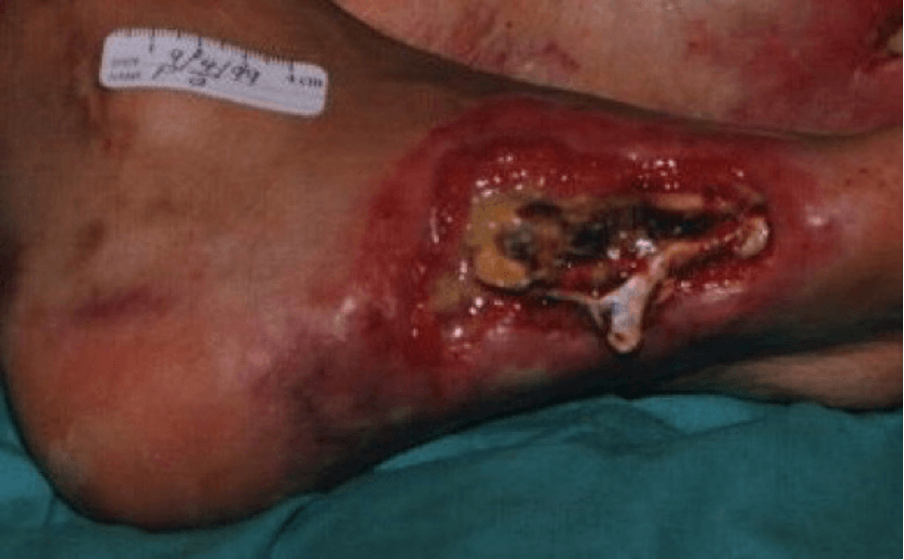Reasons for excessive exudate production
Venous hypertension
Venous hypertension is possibly the most common cause of high levels of exudate in the lower leg (Vuolo, 2004).
In leg ulcers, hydrostatic pressure in the venous system causes the veins to distend. This widens the cell junctions and permits the passage of fluid into the wound surface (Majno & Joris, 1996). Compression therapy will assist with reversing the pathology that creates the problem (WUWHS, 2019; Tickle, 2016).

Wound bioburden
Most chronic wounds are colonised by bacteria. This can cause an increase in exudate levels, which, if left, may lead to wound infection. The higher the bioburden, the higher the amount of exudate in the wound. A reduction in the bacterial level of the wound will reduce the level of exudate in the wound
(WUWHS, 2007; International Consensus, 2016).
Chronic heart failure
Chronic heart failure can lead to very oedematous legs that leak vast amounts of exudate through the skin. This can cause problems for the patient through maceration and breaking down of the skin. This can be treated with diuretic therapy to treat the heart failure. Bandaging and leg elevation may also be considered with caution to ensure that the cardiac system is not overloaded, as the sudden flood of fluid can cause cardiogenic shock (Adderley, 2008).
Lymphatic obstruction
If when the lymphatic drainage system is unable to carry out its function of draining protein-rich interstitial fluid due to obstructions caused by disease, surgical procedures or obesity, an imbalance of fluid can occur. This may lead to the surrounding area becoming very oedematous and leaking large amounts of exudate. Treatment is the reduction of oedema through compression therapy, leg elevation, exercise and wound care (Hampton & Collins, 2003; Bianchi, 2012).
Electrolyte imbalance
Other reasons for fluid loss include diseases that disrupt homeostasis, such as low protein levels, which can cause fluid imbalance (Majno & Joris, 1996).
Serum albumin maintains a pressure within the venous system that balances the fluid between the extracellular and venous system. Reduced levels of serum albumin may cause fluid to escape into tissues to cause oedema and leakage from legs (Vuolo, 2009).
Implications
Excessive exudate can bring misery to patients’ lives. Uncontrolled, leaking exudate can lead to the soiling of clothing, bedding and malodour, which is distressing, socially embarrassing and inconvenient. Heavy exudate may contribute to malnutrition since any accompanying malodour may reduce appetite. It may also result in the patient becoming generally unwell from electrolyte imbalance (Adderley, 2008; Barrett, 2015).
Excessive exudate will also have an impact on clinicians as it may cause the wound to break down further due to excessive maceration. This will result in an increase in nursing time and increased costs as frequent visits to renew dressings will be required (Adderley, 2008; Romanelli et al., 2010).